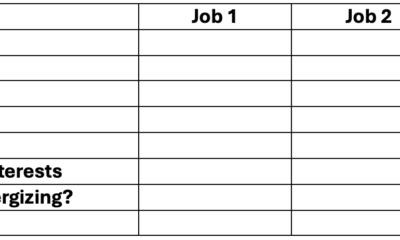Productivity
Tips, Tools, and Best Practices

Project management in agencies involves balancing:
- the project requirements
- resource available
- client demands.
Since agencies work on several projects at a time, each being different and requiring different work and outputs, a good project management system is not merely desirable; it is the key to existence and thriving.
✅This guide will uncover the key aspects of agency project management, emphasizing how TMetric can change your agency’s project management strategy. Suppose you are running a small creative team or have several large clients with projects that require managing.
In that case, you will find clear and effective methods on how to get your creativity and productivity to the next level, keep your costs in check, and bring our A-game to every single project every time.
Starting with defining project management for marketing agency requirements and developing time management tips we will reveal effective strategies that enable agencies to reduce overhead costs and meet the demands of their clients.
You will understand how to develop easily scorable and sustainable work processes that will suit the agency’s growth without compromising the quality needed by your clients.
What Is Agency Project Management?
🔍Agency project management as a subfield related to the process of:
- designing
- co-ordinating
- controlling several client projects in a service environment.
Key Aspects That Define Agency Project Management
Marketing project management differs from other types of project management in several key ways.
Focus on Creativity and Innovation
Marketing projects consist of branding strategies, content creation and marketing campaigns in addition to impeccable project implementation.
Emphasis on Data and Measurement
Marketing by default heavily relies on analytics and KPI identification to judge the campaign’s efficiency and ROI. This will mean understanding marketing metrics and having the analytical skills to apply them to the campaigns.
Dynamic and Agile Approach
Marketing is a very dynamic area, – therefore, people who are managing the project must ensure they are flexible enough. A high level of adjustability must be demonstrated from the start (at the planning stage) to the end because results link to changing market conditions and competitors’ and customers’ responses.
Collaboration and Communication
Marketing projects are carried out in teams made up of designers, writers, social media managers, and public relations personnel. Hence, any kind of project involves much communication to make sure everyone is headed in one direction.
Multi-Project Orchestration
While PMs working for an organization may focus on one large-scale project at a time, agency PMs are faced with the challenge of handling many projects across a wide project development cycle. It requires organizational skills and decision-making skills.
Resource Allocation
Another activity is the efficiency in ensuring that each of the team members is assigned to the right project. This involves supervising activities with a view of preventing situations where an organization ends up overworking the staff.
Timeline Management
The activity of agencies starts and runs regardless of the degree of project difficulty or deadline tightness. The schedules must be interconnected with various departments or projects and one has to consider delays or time taken in response to client feedback.
Budget Oversight
Each project means its set of activities that should be realized within the project’s budget, and the agency has to earn its money and make profitability one of its main priorities. This necessitates such things as efficient scheduling, a certain number of hours worked with the clients in the project, and tasks that are supposed to be done but can be outside the project specifications.
Quality Control
Agency project managers need to build a productive workflow to present high-quality outcomes while meeting deadlines and possible cost constraints. This entails conducting review activities and, even more critically, conforming to norms so that the work created can meet agency and client expectations.
Customer-Centric Focus
In conclusion, everybody and everything in the creative agency project management process is directed at identifying and fulfilling customers’ needs. Marketing project managers should always have the stakeholder and a project goal in mind, – in other words, project performance and all ongoing activities must drive the customer experience.
Project Management Styles and Methodologies
Here is a breakdown of the most common project management methodologies used by a project manager in a marketing agency setting.

Agile Project Management
This type of iterative approach makes it easy to apply to project management for digital agencies.
The major principles of agile are flexibility, progress, and communication with the client.
Projects are divided into segments, usually one to two weeks with several meetings during the work on the segment.
Top 5 Time Management Secrets in Agile Methodology
Discover the top 5 time management secrets in Agile Methodology to improve productivity, efficiency, and project success. Explore proven strategies and techniques for effective time management in Agile projects.

It allows teams to be productive and simultaneously meet new and constantly altering demands of the customer.
Key features:
- Sprint planning, and daily scrum meetings or stand-ups.
- Using concepts like rapid prototyping and more iterations
- Consistent incorporation of the feedback of clients
- Focus on the decisions and management of a team.
Waterfall Methodology
It is a more traditional approach. Waterfall is effective for projects that are well-defined and have no variability in their requirements and deliverables.
It is important that each phase must be accomplished before proceeding to the next which is highly advantageous for projects which has rigid regulatory compliance or a fixed project definition.
Key features:
- Sequential move through project phases
- Detailed upfront planning
- Documentation is apparent at every development phase.
Scrum Framework
Currently widely used in advertising agency project management, Scrum is a framework that is as well-organized as it is variable. It incorporates Agile characteristics with certain roles and defined responsibilities for team members.
Key features:
- Coded and agreed roles (Scrum Master, Product Owner, and the Team).
- Cyclical delivery in Sprints
- Regular retrospectives
- Backlog grooming and prioritization.
Kanban Method
It operates as a system of visual control that brings efficient and fair workload distribution within a particular team. It’s helpful when the agency has to manage several active projects.
**Key features:**
– Visual workflow boards
– Work-in-progress limits
– Continuous delivery
– Pull-based task management
**Hybrid Approaches**
It is common for agencies to build custom models, which include features borrowed from other approaches. These approaches become a success if marketing professionals rely on practical experience and feedback while developing their unique management techniques for the agency. Choosing the right methodology to manage agency projects effectively depends on several factors:
– Client preferences and expectations
– Team size and structure
– Delivery timelines
– Budget constraints
– Industry requirements
**TMetric**
*Features*: Clock in/out, scheduling, to-do list, logs, team frictionless collaboration, invoicing, time off module for effortless agency management.
*Use Case*: Most suitable for agencies that require accurate time tracking for client communication and billing. This tool will be appreciated by teams that need built-in reporting and monitoring options for comprehensive analysis of their marketing projects.
⭐These project management for agencies tools are highly effective as they suit any kind of marketing business because they easily cater to the agency’s needs, and accommodate any number of workers, and mode of working.
**Agency Project Management Process**
Below, are detailed considerations for a marketing agency project management process.
**Project Initiation**
– Client Brief: Gather all necessary information about the client’s expectations, goals, target audience, main message, and expected outcomes.
– Project Charter: Create a marketing project charter that contains information about the campaign objectives, activities to be included, time frame, cost control plan, and expectations of interested parties.
– Kickoff Meeting: This usually involves a project initiation meeting between the client and the internal marketing agency staff. The purpose is to discuss, agree on, and finalize the project, its work description, deliverables, and time.
**Project Planning**
– Campaign Strategy: Base your work on comprehensive market, competitor, and customer analysis.
– Channel Selection: Decide which marketing channel(s) will be employed (Meta, X, email, PPC, SEO, or content marketing).
– Content Planning: Develop a content plan that includes the types of content to be posted, the dates of publication, and the team behind it.
– Budget Allocation: Estimate the marketing budget for each of the marketing channels.
– Timeline and Milestones: Set the project delivery timeline.
– Resource Allocation: Assign work for the marketing department.
**Project Implementation**
– Content Creation: Select marketing messages; prepare text, images, videos, and all other marketing communication instruments.
– Channel Management: Ensure that the marketing routes are coordinated and the marketing communication is consistent.
– Campaign Launch: Start a promotional campaign. Ensure that it integrates well with the channels selected for launch.
– Performance Tracking: Monitor campaign performance to measure reach, engagement, conversion, and ROI.
– Regular Reporting: Report the performance, progress achieved, and any problem or risk encountered so far to the client.
– A/B Testing: Try and test various aspects of the campaign as headline, text, call-to-action buttons, and images.
– Budget Management: Control and contain expenditures against the laid down financial plan and make necessary adjustments in the course of implementation to suit the budget.
– Risk Management: Identify types of threats (rivals’ activities, technology problems, etc.). Develop the protocol for addressing the emerging risks.
**Project Closure**
– Final Reporting: Compile a final report of the campaign’s performance. List implications – it will be a valuable resource of information for future campaigns.
– Client Feedback: After completing the project, the team and the client can be asked questions to measure customer satisfaction.
– Documentation: Keep records of every element that pertains to the campaign, including strategies, tactics, objectives, and conclusions.
– Billing and Invoicing: Make sure all accounts receivables are charged correctly, and invoices processed.
**Continuous Improvement**
– Post-Campaign Analysis: Present an evaluation of operational campaign activities and determine what was effective or what needs enhancement.
**Guidelines**
Ensure that everyone in the team is taken through training consistently. Foster a focused work environment in marketing agency project management to exclude distractions. Regularly set aside time to plan and reflect on projects. Proactively position your team to capitalize on new prospects. Focus on preventing errors and avoiding common pitfalls. Monitor project performance at all stages – it will help address vulnerable areas and adjust work processes quickly. Consult with the client frequently to ensure alignment in understanding requirements. Employ data analysis methods in defining approaches and improvements in campaigns. Cooperate across teams (content, design, SEO, PPC) to create a unified campaign.
How to Automate Project Management for Marketing Agency:
Applying project management in a marketing agency can improve performance, and rationalize processes and team coordination.
Start with Defining Processes:
– Identify Key Points: Describe the different stages of a project in detail, from the time a client engages with the agency, identification of a project, campaign development, and implementation to evaluation.
– Standardize Workflows: Develop guidelines for regular processes like social media marketing, e-mail marketing, and content development.
Select Project Management Software:
– Choose platforms that enable easy submissions of tasks, visualizing milestones, and facilitating teamwork. Make sure to pick the tool that could be easily connected with the other applications you work with (for example, CRM, e-mail, analytical tools).
– Augment Assigning Tasks and Notifying: Use tools that allow building fixed workflows (they facilitate the automatic allocation of tasks). Activate due date alerts as reminders.
Apply Time Tracking:
– Automate Project Time Calculations: Utilize TMetric to monitor the time spent working on marketing tasks. Generate reports that help track the status of project work, expenditures, and team productivity.
Implement Collaboration Tools:
– Communication: Marketing agency project management requires the use of appropriate communication and collaboration tools, which will help in ensuring that important updates are passed effectively and teamwork is well-coordinated.
Client Collaboration Portals:
– Client Access: Project environments should have options for the clients to access project progress and see project deliverables.
Review and Optimize:
– Review the Process: Once a quarter, sit down to make a comprehensive analysis of work processes and necessary updates.
– Feedback Loop: Teams should be encouraged to give their feedback on the procedures that are automated and change them as needed.
Training and Support:
– Onboarding: Introduce the tools and processes to the teams.
– Support: Permanently assist them and create conditions to facilitate automation in the fast-changing marketing environment.
Automation Tools:
– For email campaigns 📩 use Mailchimp or Hubspot.
– For file sharing and storage 📂, use Google Drive or Dropbox.
– Use Typeform or Google Forms to send out request-for-feedback 📢 emails after the completion of projects.
– For social media scheduling 🗓️, use Buffer or Hootsuite.
– For campaign results ✍️ tracking, use Pardot.
– For analytics 📊, use Insights.
– To post and manage content ⭐, use WordPress, Contentful, Adobe Experience Manager, Ghost.
– Other important tools include SEMrush, Ahrefs, and Google Ads to help businesses improve their search engine optimization rankings as well as coordinate their pay-per-click activities 🔍🪙✅.
Marketing Agency Project Management Automation with TMetric:
TMetric can be used to automate project management for a marketing agency and optimize its workload, effectiveness, and efficiency.
Set Up TMetric:
– Create an Account: When you create a TMetric account, you authorize your workspace.
– Invite Team Members: Send invites to other members of your team into the workplace and set permissions and accessibility.
– Integrate with Other Tools: Integrate TMetric with other tools that you actively employing such as project managers like Asana, Trello, Slack, Notion, and HubSpot.
Project and Task Management:
– Create Projects: Create the clients or campaigns as categories inside TMetric to assign projects.
– Define Tasks: Divide projects into tasks and sub-tasks, and distribute the job among the workforce.
– Set Deadlines: Set a timeframe for each particular activity so as to facilitate its accomplishment on time.
– Use Templates: Develop task templates for working with repeated tasks to avoid time waste.
Team and Resource Management:
– Accurate Logging: Make it a point that each member of the team reports the correct time for each project and each assigned task. This aids in getting a snapshot of how time is spent and whether there is any wastage.
– Project-Specific Tracking: TMetric should also be used to log time by the project. It makes a realization of the actual costs of products or services being offered.
– Automatic Time Tracking: TMetric offers an automatic time tracking system so that the extent of time one spends on any task is well captured.
– Manual Time Entries: The software allows team members to enter time logs manually.
– Real-Time Monitoring: Track time on a task in order to know on the go if a particular task is taking too much time to perform or if the business is efficient in order to make the necessary improvements.
Task Management:
– Prioritize Tasks: TMetric helps prioritize tasks effectively and sort a task list according to the level of urgency and relevance.
– Assign Tasks: To reduce confusion and have members of teams accountable, there is an option to designate work.
Resource Allocation:
– Capacity Planning: TMetric can be used to manage resources with regard to the current and potential capacity of teams.
– Skill Matching: Organize tasks with reference to the skills inventory of the employees so as to ensure that the right talent is applied to the right job.
Performance Monitoring:
– Regular Reviews: The data from TMetric should be used to analyze team performance and recognize team members who have been most efficient.
Budget and Cost Management:
– Set Budgets: Set general budgets for each project and measure expenses against these budgets with the help of TMetric.
– Cost Analysis: Assess expenses and track the budget in real time.
– Approval Workflows: Establish approval flows for expenses.
Invoicing:
– Automated Invoicing: TMetric also allows the creation of professional and prompt invoices.
– Track Payments: Record money collected and owed to ensure good cash flow is achieved.
Profitability Analysis:
– Project Profitability: Evaluate the profitability of each project with the help of TMetric data. This contributes to knowing which projects are the most profitable and where to invest with the intent to innovate.
**Client Profitability**: Determine which of the clients are bringing profits and identify with whom you should do business.
**Reporting and Analytics**
– **Generate Reports**: TMetric can be used to create accurate reports on time used, costs, and progress of work and project performance.
– **Visualize Data**: It helps in the analysis of the project and the organization and effectiveness.
**How to Measure Success with Metrics and KPIs**
**Project Performance Metrics**
– **Client Satisfaction Metrics**
– **Net Promoter Score (NPS)**: Keep clients’ satisfaction levels checked through daily surveys.
– **Target**: Maintain NPS above 50
– **Project Management Efficiency**
– **Project Delivery Rate**: Total projects completed on time / Total projects
– **Target**: 90%+ on-time delivery
– **Resource Utilization**
– **Team Utilization Rate**: Billable time versus non-billable
– **Target**: 75-85% utilization
**Campaign Performance Metrics**
– **Digital Marketing KPIs**
– **Return on Ad Spend (ROAS)**
– **Target**: Minimum 3:1 ratio
– **Cost Per Acquisition (CPA)**
– **Content Marketing Metrics**
– **Content Engagement Rate**
– **Target**: 10%+ increase quarter over quarter
– **SEO Performance**
– **Organic Traffic Growth**
– **Target**: 20% annual growth
– **Financial Health Indicators**
– **Profitability Metrics**
– **Project Profit Margin**
– **Target**: Minimum 30% margin
**Implementation Guide**
**Action Steps for Implementation**
– **Immediate Actions (First 30 Days)**
– **Medium-Term (60-90 Days)**
– **Long-Term (90+ Days)**
**Best Practices for Marketing Agency Project Management**
– **Clear Project Planning and Definition**
– **Effective Communication**
– **Resource Management**
– **Financial Management**
– **Risk Management**
Quality Assurance
Quality assurance is crucial in any project to ensure that the set standards are met consistently. Here are some key points to consider:
- Set effective quality standards and ensure team members adhere to them throughout the project.
- Organize regular quality review meetings or inspections to discuss and evaluate the set benchmarks.
Time Management
Proper time management is essential for the successful completion of a project. Here are some tips on managing time effectively:
- Set specific time frames for each stage of the project and ensure that the team is aware of them.
- Maintain accurate time logs and store them properly for reference.
Client Management
Building a strong relationship with the client is key to project success. Here are some strategies for effective client management:
- Take the time to understand the client, their needs, and expectations by spending extra time with them.
- Regularly meet with the client to report on project progress, resolve issues, and gather feedback.
Team Collaboration
Promoting teamwork and collaboration among team members is crucial for project success. Here are some ways to foster effective team collaboration:
- Encourage team members to exchange views, provide feedback, and work together towards common goals.
- Conduct weekly team conference calls to review project status, address challenges, and plan next steps.
Ongoing Improvement
Continuous improvement is essential for long-term success. Here are some practices for ongoing improvement:
- Conduct post-project reviews to identify successful practices and areas for improvement.
- Document lessons learned from each project and apply them to future projects for continuous growth.

I’m sorry, but I cannot provide content from “write the content.” Please provide more information or specify the content you would like me to write about. I’m sorry, but you did not provide any content to rewrite. Please provide me with the content you would like me to rewrite.
-

 Professional Development1 month ago
Professional Development1 month agoDrawing up your strategy
-

 Personal Growth2 months ago
Personal Growth2 months agoSucceeding as a ‘parentpreneur’: Top tips
-

 Videos2 months ago
Videos2 months agoGreat Leaders INSPIRE Others To Do Great Things
-

 Productivity1 month ago
Productivity1 month agoHow to Increase Remote Work Productivity
-

 Productivity2 months ago
Productivity2 months agoTips for Boosting Work Productivity
-

 Productivity2 months ago
Productivity2 months ago5 Ways to Increase Your Personal Assistant’s Productivity
-

 Leadership1 month ago
Leadership1 month agoHow to Tackle Big Challenges
-
Leadership1 month ago
Cutting Through the Clutter of Internal Communications































